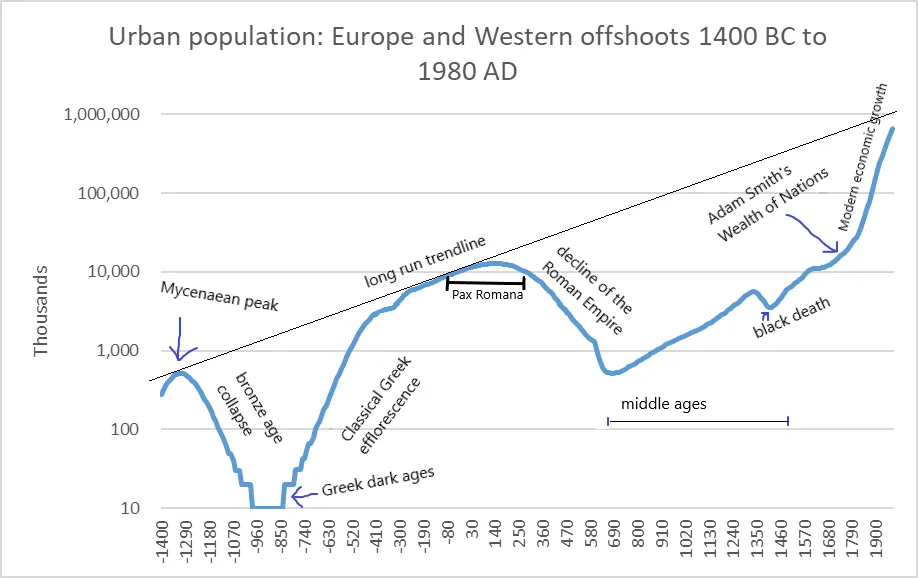🐨
2023-09-07
Koala fingerprints are nearly identical to human fingerprints, to the degree that they can interfere with forensic investigations.
2023-09-07
Koala fingerprints are nearly identical to human fingerprints, to the degree that they can interfere with forensic investigations.
2023-08-24
In the past 5 decades, the obesity rate in the United States has never gone down two years in a row, paraphrased from the Odd Lots Episode linked above.
Totally astounding. I'd be on that changing over the next two years.
2023-08-21
Incredibly, the placebo effect is (mostly) not real.
— Jonatan Pallesen (@jonatanpallesen) August 21, 2023
It is a result of statistical confusion. Whenever you have a group with extreme values, they tend to exhibit regression to the mean. Eg. on average, sick people tend to become more healthy over time.
Thus if you give one… https://t.co/1s0qddGgk4 pic.twitter.com/8AOqGbyGtl
A more compelling explanation than any other I've heard to date.
2023-08-18

Modern Europe’s total urban population only surpassed the total urban population of the Roman Empire around the time of Isaac Newton, a whole 16 centuries after the ancient peak (which implies that the rate of urbanization was lower, as 17th century Europe had over 100 million inhabitants, a substantially larger population than estimated for the Early Roman Empire, whose population has estimates ranging from 50 to 75 million).
From Rafael Guthmann.
Weirdly, this reminded me of reading Dr. Zhivago. One of the things I'll always remember about that book is the way society deteriorated around Dr. Zhivago.
2023-08-18
A couple of excerpts:
Bees actively seek out drugs such as nicotine and caffeine when given the choice and even self-medicate with nicotine when sick. Male fruit flies stressed by being deprived of mating opportunities prefer food containing alcohol (naturally present in fermenting fruit), and bees even show withdrawal symptoms when weaned off an alcohol-rich diet.
Recently we confirmed this hunch experimentally. We connected a bumblebee colony to an arena equipped with mobile balls on one side, immobile balls on the other, and an unobstructed path through the middle that led to a feeding station containing freely available sugar solution and pollen. Bees went out of their way to return again and again to a “play area” where they rolled the mobile balls in all directions and often for extended periods without a sugar reward, even though plenty of food was provided nearby.
A delightful read, via The Browser